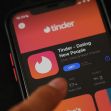A California-based class-action lawsuit brought by app users successfully resulted in a large settlement this week against Bumble. In total, the new settlement is $3 million and will go to male app users who qualify under specific guidelines.
The class-action lawsuit alleged Bumble discriminated against male app users, specifically those who expressed a preference in meeting female app users. The claimants said Bumble discriminated against them because they were males since the dating app Bumble only allows women app users to reach out first to any males on the site.
Attorneys for the plaintiffs included arguments based upon the Unruh Civil Rights Act, which “prohibits businesses from engaging in unreasonable, arbitrary, or invidious discrimination.” Lawyers successfully argued in court that the Unruh Civil Rights Act applies to unequal treatment of individuals by a business and that it was discriminatory for Bumble to offer “benefits to females that are not provided to males who identify as interested in women using the same product for the same purpose. There is no requirement that the aggrieved party must demand equal treatment and be refused.”
In order to qualify to participate in the $3 million settlement, the class member must have used the app between May 29, 2016, and July 1, 2021, and specifically identified themselves on Bumble as a male interested in meeting females.
The claimants can choose to receive a cash settlement or Bumble SuperWipes, which is a new button feature Bumble offers to communicate to a specific user that you would like to match with them, prior to any swiping on their part.
Bumble is the first online dating site app to offer women interested in men the opportunity to choose their matches first, instead of other dating sites that allow men or women to click on a match.
Bumble is a dating application for mobile phones or other digital devices and uses GPS from said devices, plus Facebook information about the user. Bumble searches potential matches for their users and then shares with users in order to allow them to easily swipe if they like their match, or pass it.
In court documents, the Bumble plaintiff said he “downloaded an application (“app”) called Bumble from Defendant onto his iPhone mobile device. Bumble is an online version of a nightclub where single people meet.”
In 2018, Bumble launched a new service, ‘Bumble Boost.’ The cost for Bumble Boost is $8.99 per week.
This paid service was marketed and provided only to male App users, and said they would be able to “double your matches,” plus “start increasing your matches right away,” and “take control of your dating experience.”
As is the norm for Bumble, only the female can swipe on a male’s profile if she feels he is a match. And, if a female does not swipe on a male profile, their potential match is deleted, so the male cannot contact her.
In court documents, a 30-year old male plaintiff said he, “purchased a subscription to Bumble Boost, for $8.99, to take advantage of the supplemental services provided and to increase his likelihood of meeting someone through the App. In downloading the Bumble app in mid-2018, Plaintiff immediately paid for “Bumble Boost” after he was informed, by various advertisements, promotions, and websites that doing so would lead to more matches. Bumble discriminated against him because of gender because only the females were given the ability to send the first message after a match was made.”
Bumble created a ‘Bumble Boost Settlement Fund’ for Class members who file valid claims.
The national Class includes anyone in the US who purchased Bumble Boost between November 13, 2014, - July 15, 2020. The California Class includes anyone from California who purchased Bumble Boost between the same dates and was charged via their debit or charge card or a third-party payment account for the Bumble automatic renewal program, also known as the continuous service program.
Bumble does not admit guilt or any wrongdoing, and the court does not find Bumble guilty of any wrongdoing due to the settlement.






